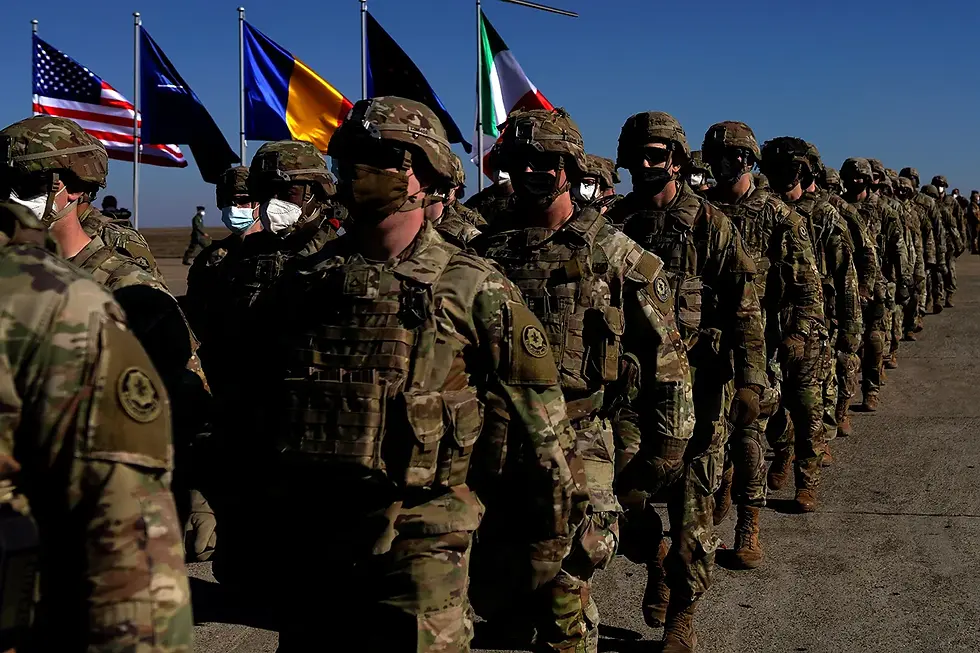The Importance of Education
- Nathan Decety

- Jun 11, 2020
- 5 min read
Updated: Jan 17, 2021

As a management consultant, I think about processes a lot. How do you structure work flow, information paths, and decision processes? Is there an ideal set up? These current past two weeks for instance have seen protests and riots over the Floyd murder in Minneapolis - can procedural changes to police departments be the answer to avoid these situations in the future? I’ve realized recently that there are limits to organizational processes, and that every process means nothing without a solid base constructed of motivated and genuinely good individuals. The best way, in my view, to think about it is in military terms. I don’t mean that to heighten the importance of contests of arms or to glorify conflict; I bring it up because war is a competitive environment where decisions have very clear and measurable outcomes, it is clear what works and what does not work: people die and resources are wasted when a poor decision is made.
Let us briefly take a walk through different organizational setups for decision-making.
Extreme Decentralization
A battlefield involves many moving parts with a rapidly changing context. What is true one moment for one part of a battlefield is not true for another. The flow of information is often slow, easy to interrupt, and limited – whether data is shouted, written on paper, sent in an email, broadcast on a radio, etc. As a result, leaders will be unable to make thoughtful decisions, they rarely have complete, suitable, or timely information. That matters because if the enemy is making more decisions than you, they have the initiative and can strike wherever they wish. Over time, they are almost certain to find weak spots in your defenses and will destroy you with a massive blow, or a series of attritional attacks; no armor is impenetrable. The solution – which I discussed extensively in my book[1] – is to foster decentralized decision-making and critical thinking in troops at the lowest possible level. However a major limitation is that they also have potentially less macro information than a centralized commander: imagine a platoon sees an empty field ahead of them and seizes the initiative by marching in, thereby exposing their flanks to an ambush and leaving a hole behind them for the enemy to exploit. Extremely decentralized leadership also limits how many resources are allocated. Without working together for a common cause, everyone can at most be a rifleman, they won’t be able to launch (or block) a major strike, especially if it’s from a coordinated mixed-arms force (a combination of aerial assets like planes, tanks, artillery, and infantry). Lastly, decentralized decision-making reduces the oversight on individuals and makes it more difficult to hold them accountable – a huge problem when it comes to, say, ensuring people are not committing war crimes or committing treason.
Centralization: A Single Point For Decisions
We already discussed costs some of the benefits of centralization, so we can now discuss some of the ways in which it can be instituted. As mentioned, it is paramount that decisions are made quickly. A single point for making decisions like a king or a general, is therefore tempting and exists in almost all military organizations. There are countless situations when more centralization of authority and less squabbling among equals would have yielded superior results – for instance the Russian army’s experience during the Crimean War, or the Japanese island in WWII.[2] And yet it is also clear that there are procedural limits: informational flow is limited and constrained, processing capability for that information is also limited – these are problems even for an ideal candidate for the role. A bigger problem is that there are rarely ever ‘ideal candidates.’ The data one person might think is relevant based on available information and history may not actually be relevant at all, as shown by the decisions and thoughts of Admiral Kimmel and General Short, the U.S. military leaders in charge of defending Hawaii who contributed to making Pearl Harbor a complete shitshow. Their decisions weren’t wrong at the time, they were wrong in hindsight, which doesn’t mean that they were poor decisions (assuming that an adversary will adapt if possible based on your actions, a lot of decisions might appear to be bad if viewed uncoupled from their intent). A highly centralized decision-point is a roll of the die that can lead to countless poor decisions under changing environment without determining that the problem is with the decision-maker. For example, Hitler and Göring were fed poor information regarding the capacity of the Nazi air force, the Luftwaffe, early in the war by their subordinates, allowing the brilliant strategic encirclement of the allied armies at Dunkirk to become lessened when the British Expeditionary Force slipped away (they would have collapsed under a direct coordinated arms attack, but instead the Germans tried obliterating or defeating the BEF entirely by bombing and strafing).
Centralization: Committee
Instead of a single man (or woman) making all the major decisions, why not a group? There are few major decisions that wouldn’t benefit from multiple inputs, and diverse groups come up with a much greater breadth of ideas than an individual. But there are issues here as well, beyond the already discussed issues of centralization. Among the many, here are four salient ones that come to mind for me. First, just because there’s a group does not mean that every member ‘ranks’ the same, one or two individuals might monopolize the group and persuade or force the rest to follow their wills. Second, people within committees might not share all information at their disposal as they jostle for influence or seek to push their own agenda. Third, committees might fall prey to group think, as for instance the CIA did when they decided to stage the Bay of Pigs invasion of Cuba (or so many of the other American foreign interventions of the 20th and 21st centuries). Fourth, committees will be slower at making decisions than individuals and may not make a decision at all.
Importance of the Individual
It is clear, in each case, that what really matters above all is the individual and what they decide to do with the information and time they have at their disposal. There is no fool-proof, perfect system, there is only an amalgam of individuals. The better the individuals, the better the system. On the flip side, if the individuals are good, they can make most systems function. That’s why we can’t ‘redesign’ our way through complex problems without addressing the need for better people. Education is important because it improves individuals in almost every way. No process or procedure succeeds with bad people.
[1] https://www.amazon.com/Becoming-U-S-Marine-Adapting-Training-ebook/dp/B07ZQTHHP5#:~:text=In%20the%20first%20part%20of,suggested%20improvements%20to%20Basic%20Training. [2] The Russian army was plagued by inefficiency and confusion as command was typically split along geographic areas, while Japanese naval and army branches jostled over doctrine as they defended themselves from American assaults in the Pacific.


Comments